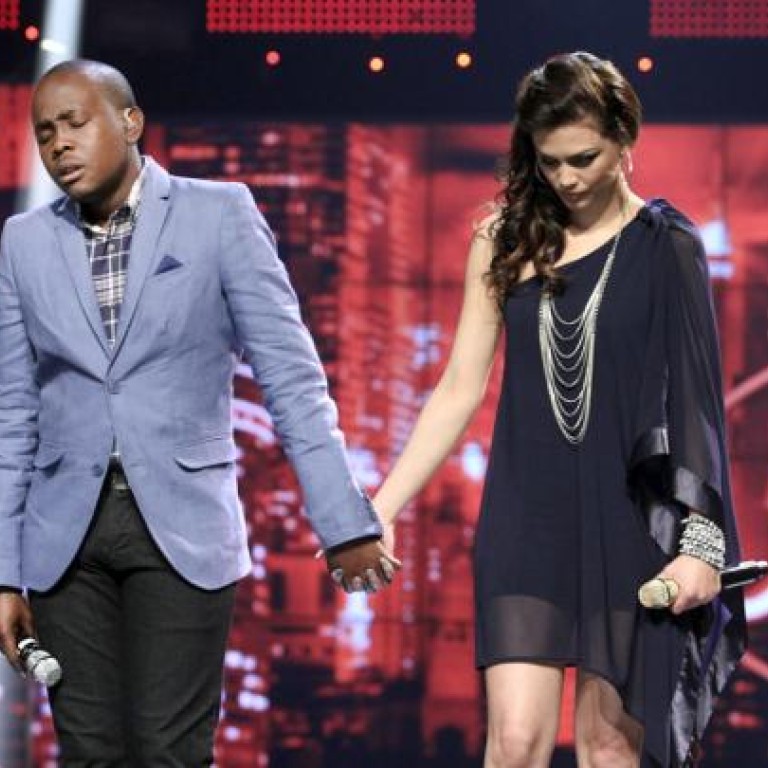
Finally, South Africa's first black 'Idol' winner
Singing contest had white winners for seven seasons before slick star made TV history
When Khaya Mthethwa breathed out the last notes of Nicki Minaj's Super Bass, a song he had heard for the first time that same day, the judges of Idols SA - the South African version of American 8Idol - were blown away.
"Dude, you've just got it," said Gareth Cliff, one of the celebrity judges, shaking his head.
"This is your competition to lose," said Unathi Msengana, a fellow panellist.
Beyond the usual jitters of a contestant on a reality television program, singing his heart out and hoping for a big break, there was another pressure weighing on Mthethwa: would he finally become the first black contestant to win Idols in his country?
It might seem strange, in a nation where 80 per cent of the population is black, that a singing contest decided by a popular vote had failed for years to produce a single black winner.
And in South Africa, which for decades separated the races under a brutal apartheid system that put blacks at the bottom and whites on top, nothing - not even a singing competition - escapes examination under a powerful racial lens.
So last week, when Mthethwa was crowned winner of the eighth season of Idols, a fit of soul-searching ensued over how far the rainbow nation has come in burying its racial divisions.
"It's about time a black person was recognised," said Portia Moloi, a 23-year-old sales clerk. "Why did it take so long?"
Idols, in all its iterations across the globe, is meant to represent the democratisation of musical taste. In its purest form, winners are chosen by a popular vote conducted largely via text messages.
Contestants perform contemporary pop hits, classics and old standards before a panel of expert judges from the music business. Ultimately, it is up to the viewers to decide who wins.
But as is so often the case in this theoretically egalitarian country, the competition was long swayed by the deep imbalances in wealth that have made this one of the most unequal societies in the world.
South Africa's version of Idols began airing on M-Net, a private satellite channel available only to subscribers to DStv, in 2002. Back then, the subscriber base was largely white, said Yolisa Phahle, an executive at M-Net, because black people could less easily afford the subscription fees. Votes are cast largely via SMS, which also costs money.
Eusebius McKaiser, a political analyst whose new book, A Bantu In My Bathroom, tackles South Africa's lingering racial tensions, believes that if Idols were shown on the national broadcaster's free channels a black winner would have emerged much earlier.
"We would be talking about when Idols would have its first white winner," said McKaiser, who is a rabid fan of the show.

